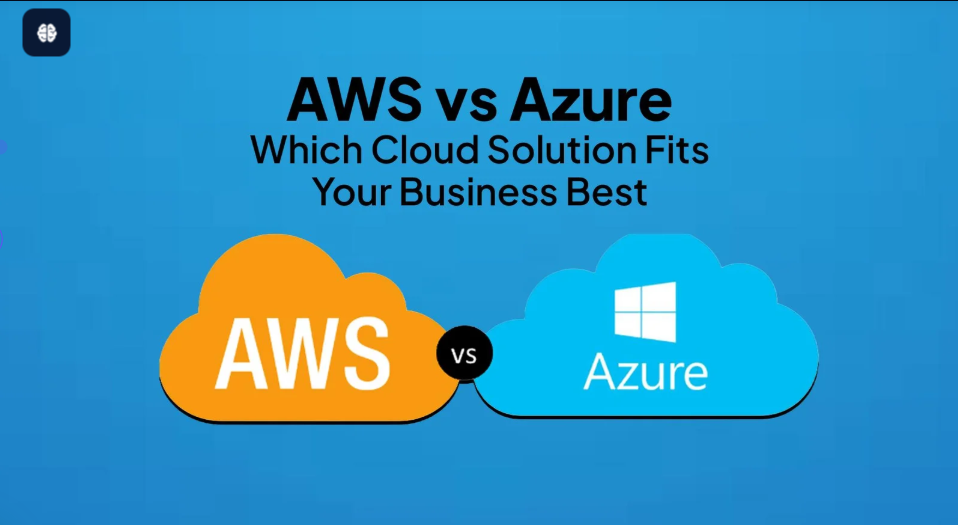AWS vs Azure Explained: Which Cloud Platform Should You Invest In?
In today’s fast-evolving digital world, cloud computing has become the backbone of innovation, efficiency, and scalability. Whether you’re a startup seeking flexibility or a large enterprise aiming for global expansion, choosing the right cloud platform can define your long-term success. Among the top contenders, Amazon Web Services (AWS) and Microsoft Azure stand out as the two most trusted and powerful platforms. Both offer a vast ecosystem of tools and services designed to help businesses build, manage, and deploy applications effectively. But when it comes to AWS vs Azure, which cloud platform should you invest in? Let’s explore their features, strengths, and key differences to help you make the right decision.
Understanding the Cloud Leaders
Amazon Web Services (AWS) was launched in 2006 as one of the first major cloud computing platforms. Over the years, it has grown into the market leader, serving millions of businesses worldwide. AWS offers a broad range of services—spanning computing, storage, networking, artificial intelligence (AI), machine learning (ML), and data analytics. It is known for its flexibility, scalability, and unmatched global infrastructure.
Microsoft Azure, introduced in 2010, is a strong competitor backed by Microsoft’s extensive enterprise experience. Azure integrates seamlessly with Microsoft products like Windows Server, Active Directory, and Office 365, making it the natural choice for organizations already invested in the Microsoft ecosystem. With its hybrid cloud capabilities and enterprise-grade tools, Azure continues to gain traction among businesses that want both cloud innovation and traditional IT compatibility.
Do you want to visit Char Dham? Char Dham Travel Agent is the best place to plan your Char Dham tour. You can book the tour from here.
Service Offerings and Capabilities
Both AWS and Azure provide similar core services, but they differ in depth, customization, and usability.
AWS Services:
AWS offers more than 200 fully featured services covering everything from computing power and database storage to machine learning and IoT. Its flagship services include Amazon EC2 (Elastic Compute Cloud) for scalable computing, S3 (Simple Storage Service) for storage, and RDS (Relational Database Service) for managed databases. AWS also stands out with developer-focused tools such as Lambda for serverless computing and Elastic Beanstalk for application deployment.
Azure Services:
Azure mirrors AWS’s offerings with Azure Virtual Machines, Blob Storage, and Azure SQL Database. However, it differentiates itself through strong hybrid cloud support using Azure Arc and Azure Stack, allowing businesses to manage both on-premises and cloud environments through a unified interface. Azure also excels in enterprise tools, providing seamless connections to Microsoft 365, Dynamics 365, and Power BI.
Would you like to visit Indiar? A tour operator in India is the best place to plan your tour. You can book a tour from here.
If your business values customization and scalability, AWS is the stronger option. But if you prioritize integration with existing Microsoft tools and hybrid solutions, Azure takes the lead.
Global Reach and Performance
The reach and reliability of a cloud platform are crucial for businesses operating across multiple regions.
AWS Global Infrastructure:
AWS has one of the largest global networks, with over 30 regions and more than 100 availability zones worldwide. This wide infrastructure ensures low latency, high availability, and reliable performance for businesses regardless of location. AWS’s global footprint is ideal for organizations that need to deliver services consistently across different continents.
Would you like to visit Haridwar? Travel agents in Haridwar are the best place to plan your trip. You can book your tour right here.
Azure Global Infrastructure:
Azure is also expanding rapidly, currently serving more than 60 regions globally—making it one of the most geographically diverse cloud platforms. Azure’s infrastructure is designed for compliance with local data regulations, ensuring businesses meet privacy and governance standards in different countries.
In terms of scale, AWS leads in operational maturity, while Azure wins in regional coverage and compliance readiness.
Pricing and Cost Efficiency
Cost is a major consideration when investing in cloud services, and both AWS and Azure use a pay-as-you-go model where users pay only for what they use. However, each platform’s pricing structure suits different types of businesses.
AWS Pricing:
AWS offers flexible pricing with several cost-saving options like Reserved Instances, Savings Plans, and Spot Instances. Its transparent pricing calculator helps users estimate and control expenses efficiently. While AWS may appear more expensive at first glance, its performance and scalability often provide long-term value for high-demand workloads.
Azure Pricing:
Azure’s pricing is competitive and particularly cost-effective for companies already using Microsoft products. The Azure Hybrid Benefit allows organizations to reuse existing Windows Server and SQL Server licenses, reducing overall cloud costs. Azure also provides discounts for long-term commitments and predictable workloads.
If your business is already part of the Microsoft ecosystem, Azure can save you more. However, if your primary goal is scalability and advanced cloud computing features, AWS justifies its higher cost with performance.
Security and Compliance
Both AWS and Azure prioritize security with advanced frameworks, encryption, and compliance standards to protect user data.
AWS Security:
AWS offers features like Identity and Access Management (IAM), Key Management Service (KMS), and AWS Shield for DDoS protection. Its infrastructure complies with major certifications, including ISO 27001, SOC 1/2/3, and GDPR. AWS gives users granular control over data encryption, enabling customized security policies.
Azure Security:
Azure’s Security Center, Microsoft Defender for Cloud, and Azure Sentinel offer comprehensive protection and threat detection powered by AI. Azure’s deep integration with Microsoft’s enterprise security tools provides a unified and proactive defense against cyber threats.
Both platforms meet global compliance requirements, but Azure’s enterprise security integration offers an edge for organizations that rely heavily on Microsoft’s security ecosystem.
Ease of Use and Integration
For many businesses, ease of use and integration play a big role in deciding which cloud platform to choose.
AWS is favored by developers and technical teams for its flexibility and comprehensive customization options. However, the vast number of services can make it more complex to manage initially.
Azure, on the other hand, is highly user-friendly, especially for companies already using Windows-based infrastructure. Its seamless integration with Microsoft tools simplifies setup and management, making it easier for IT teams to adapt quickly.
For enterprises seeking a familiar, intuitive environment, Azure is often the preferred choice. For developers who need maximum control and flexibility, AWS remains unmatched.
Innovation and Future Readiness
Both AWS and Azure continue to invest heavily in cutting-edge technologies like AI, machine learning, and edge computing to prepare businesses for the future.
- AWS leads in innovation, offering advanced AI and serverless tools like Amazon SageMaker and AWS Lambda, which enable faster deployment and automation.
- Azure focuses on enterprise-ready AI through Azure OpenAI Service and emphasizes hybrid cloud expansion, sustainability, and integration with IoT and data analytics tools.
If you’re focused on AI innovation and customization, AWS provides a broader toolkit. But for business-oriented AI integration and hybrid cloud solutions, Azure holds the advantage.
Which Cloud Platform Should You Invest In?
The decision between AWS and Azure ultimately depends on your business needs, goals, and infrastructure.
- Choose AWS if your business requires advanced scalability, a broad service range, and a highly customizable environment. It’s ideal for startups, developers, and companies driving innovation through AI and big data.
- Choose Azure if your organization depends on Microsoft tools, values hybrid cloud functionality, and seeks an affordable, enterprise-friendly solution with seamless integration.
Many companies today even opt for a multi-cloud approach, using both AWS and Azure to combine flexibility and cost efficiency while avoiding vendor lock-in.
Conclusion
When it comes to AWS vs Azure, both cloud giants offer remarkable value, security, and innovation. AWS continues to dominate with its scalability, reliability, and technological depth, while Azure shines in enterprise integration, hybrid solutions, and cost efficiency.
Ultimately, the right choice depends on your business’s unique goals and existing IT ecosystem. If innovation and flexibility are your top priorities, AWS is your best investment. But if you’re looking for an integrated, enterprise-grade cloud that complements your existing Microsoft environment, Azure is the smarter choice.
No matter which path you choose, one thing is certain—the future of your business lies in the cloud. Investing wisely today will set the foundation for growth, resilience, and success in the digital era.
More info: Artema Tech







